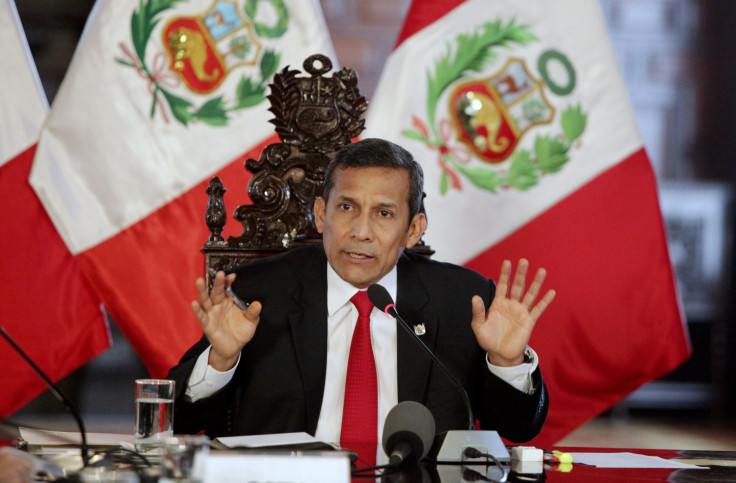Peruvian President Sees Popularity Drop After Mine Protest Clashes

Peruvian President Ollanta Humala’s approval rating fell sharply this month in the wake of mass protests against a controversial mining project in the country’s south. The president’s popularity dropped to 21 percent in May, his lowest rating in a year.
It’s a six-point drop from Humala’s approval rating in April, according to Ipsos Peru, the research firm that conducted the nationwide survey. The president, already facing pressure from the country’s economic slowdown and a corruption probe against the first lady, Nadine Heredia, is also seeing the political fallout from tumultuous protests in the southern city of Cocachacra and surrounding cities. Protesters, primarily farmers in southern Peru, are rallying against a $1.4 billion mining project, known as Tia Maria, saying the mine would contaminate water sources and damage their crops.
The protests have been going on since March, and clashes between police and protesters since then have left three dead and more than 200 injured. Last week President Humala sent government troops to quell the unrest. But protests have continued on, with clashes between demonstrators and police last Thursday resulting in 12 injuries. On Friday the Southern Copper Corp., the Mexican company that owns the Tia Maria mine, proposed suspending the project for 60 days to allow for dialogue.
A joint survey conducted by Ipsos Peru and Peru’s El Comercio newspaper found that 40 percent of respondents blamed the government for violence in the protests, while 35 percent blamed protest leaders. According to the poll, opinions were divided over the project itself: 46 percent of those who knew about the mining operation supported it, while 43 percent disapproved.
The Tia Maria project is slated to begin operations in 2017, and the Southern Copper Corp. says it plans for the mine to produce around 120,000 tons of copper a year. Mining makes up 62 percent of Peru’s export revenue, and the country holds 10 percent of the world’s copper reserves.
© Copyright IBTimes 2024. All rights reserved.





















